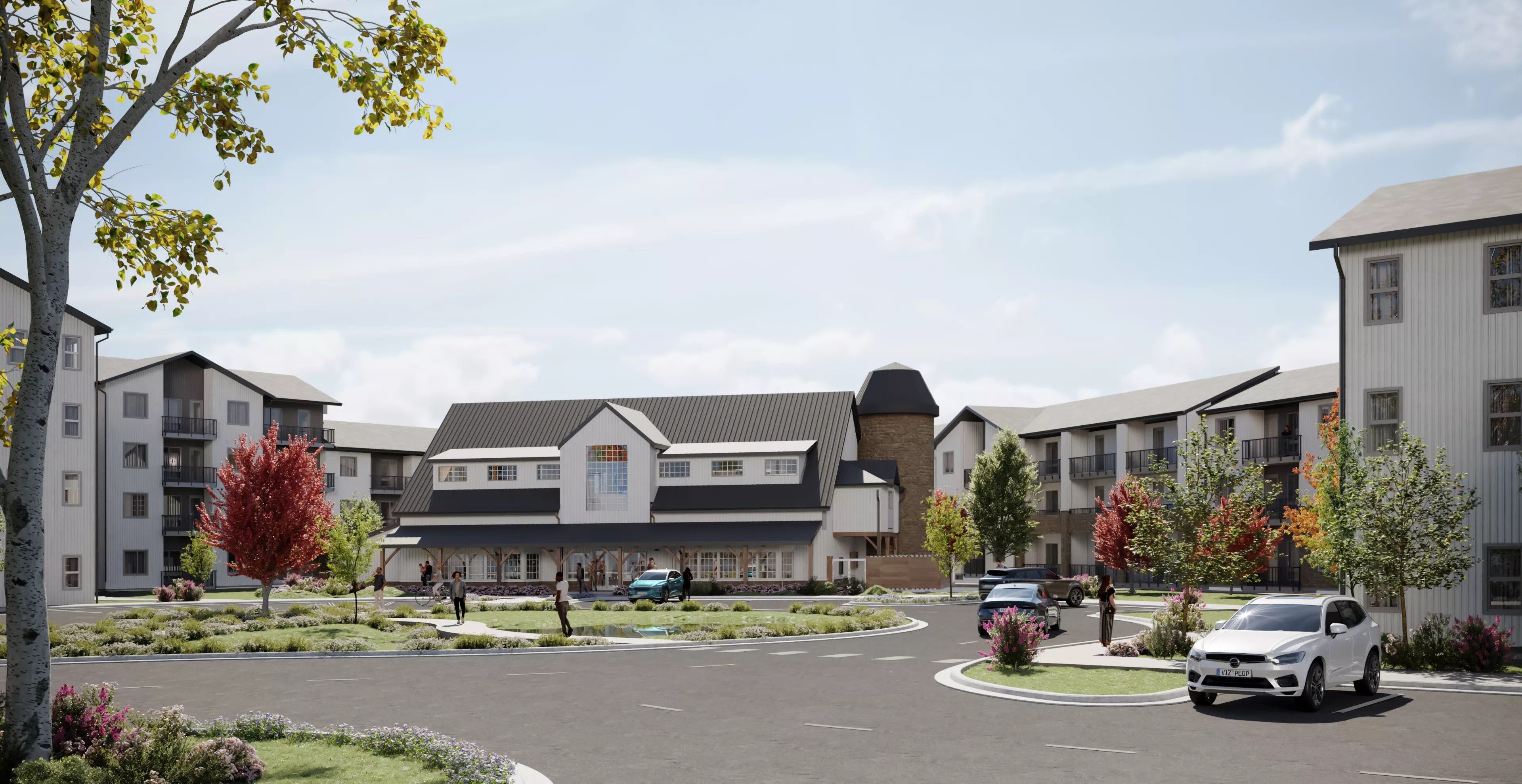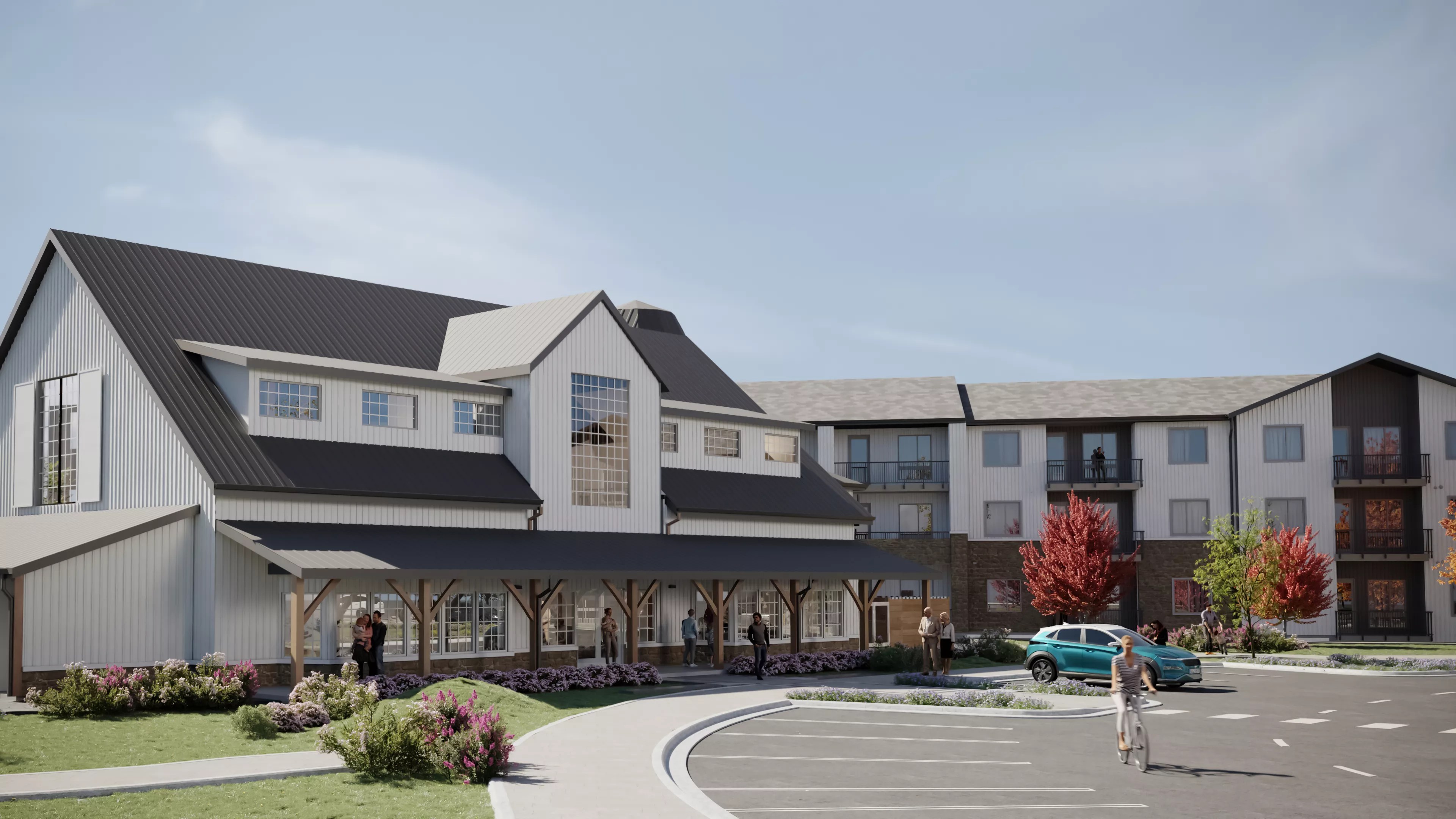
Crescent Communities

Audio By Carbonatix
Besides Casa Bonita, there’s another eatertainment experience that will always live rent-free in the minds of kids who grew up in metro Denver: White Fence Farm. The charming restaurant complex, which was renowned for its fried chicken, farm animals and fun activities, shut its doors in 2018 after four years under owners Craig Caldwell and Tom Piercy, who’d taken over from founder Charlie Wilson. The restaurant – a spinoff of the original White Fence Farm in Romeoville, Illinois, which is still open – had been operating for 45 years.
Now the property’s fate has finally been sealed, and it should surprise no one. Over 200 upscale multi-family residences will be built where families once took scenic carriage rides and and stained their fingers with chicken grease.
Crescent Communities, which bought the property with ParkProperty Capital on June 15 for $4.68 million, has dubbed the future complex Novel White Fence Farm. The community will offer studio, one-bedroom and two-bedroom apartments in three- and four-story buildings at 6263 West Jewell Avenue in Lakewood; the first residences are slated for completion in early 2023.
One artifact from White Fence Farm will remain: The barn will be transformed into the complex’s clubhouse. In addition to the clubhouse, future residents will also enjoy a pool, dog park and spa, and fitness center, among other amenities. And to honor its namesake, the complex will replace the signature white fence with a similar one, says Ben Krasnow, managing director of the Mountain States for Crescent Communities.

The luxury multi-family housing will sit at 6263 West Jewell Avenue in Lakewood.
Crescent Communities
After expansion attempts with takeout White Fence Farm outposts failed, Caldwell and Piercy closed White Fence Farm in 2018. Piercy hadn’t been involved with operating the restaurant on a day-to-day basis; that was left to Caldwell, a veteran restaurateur. But while Piercy was the investing partner, his nostalgic ties to the iconic restaurant were strong.
“We tried selling it as a business, initially. That was the whole reason for my investment in it, was to maintain the legacy,” Piercy says. “I grew up with the original White Fence Farm in Chicago. I moved here 34 years ago and discovered there was another White Fence Farm that was really modeled off the original.
“We wanted to sell it to somebody who may have better restaurant experience and capabilities. And there was just no interest in it,” he explains.
Developers were definitely interested – with Crescent in the lead – but there were obstacles to putting new projects on this prime piece of real estate.
In July 2019, Lakewood voters decided to cap the construction of new residences to 1 percent of the current housing stock in the town by approving Question 200.
“Prior to the 200 ballot initiative, Crescent and I were having local town hall meetings with the HOAs, and everybody was on board and very positive, and saw it as a positive,” Piercy says. “And when that initiative passed, boy, the whole attitude changed. And ultimately we had to compromise, and I had to lower my purchase price significantly as a result.”
Multiple lawsuits involving Crescent Communities, a local HOA and a coalition of local residents were settled last November after mediation with the City of Lakewood, and the new plans for Novel White Fence Farm reflect that agreement.
Piercy says he’s made peace with the decision to sell the Lakewood legend as real estate.
“I feel very good about it, given that the buyers create a very good product. It’s unfortunate, but the community stopped supporting it, quite frankly. The number of complaints that we got from people saying we changed this or we changed that, when we didn’t change anything,” Piercy recalls. “And it was amazing how many people thought we did. And then we held on from increasing prices. Chicken prices alone increased by over 20 percent while we owned it, and we never raised our prices, because we were trying to stay committed and keep the customers loyal.
“So at the end of the day, I have mixed emotions,” he concludes, “but at the same time, I’m kind of like, the community stopped supporting us.”